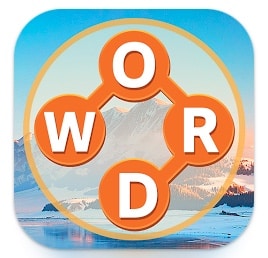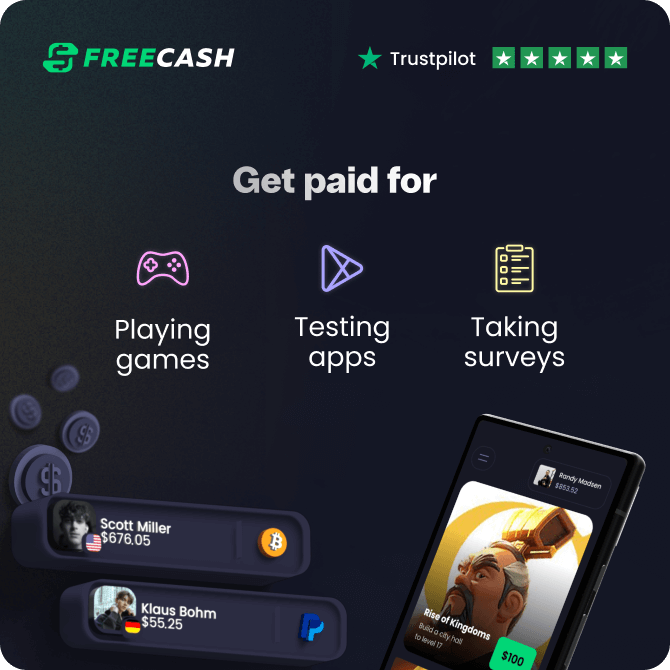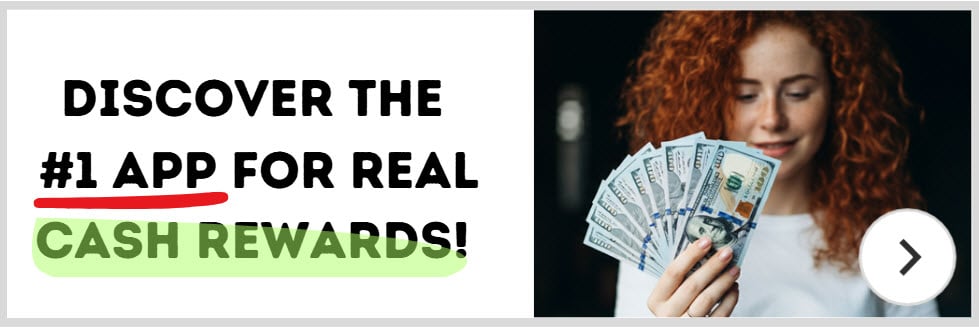 Welcome to my Word Journey review!
Welcome to my Word Journey review!
Have you ever dreamt of raking in cash just by swiping a few letters on your phone?
You’re sitting on your couch, sipping coffee, and you casually connect three letters to spell “cat” — suddenly, a digital wallet pops up and throws $31.50 at you.
Spell “act” next? Boom, another $13. Before long, your imaginary balance hits $100, and the game whispers sweetly in your ear, “Keep playing. You’re so close to $500.”
Welcome to Word Journey, the latest masterpiece in mobile deception.
If you’re here wondering, “Is this game legit or just another money mirage?” — stick around.
No spoilers right away. But let’s just say there’s a reason you found this review.
Stop playing for free – get paid to play! 💰 Click here to discover how I’m earning real rewards from games and offers on my favorite platform.
What Is Word Journey?
At first glance, Word Journey looks like your standard mobile word game.
It’s colorful, has relaxing music, and gives you a satisfying little dopamine hit every time you form a word correctly.
Think of it as a budget version of Wordscapes — but with a twist: it throws fake cash at you like it’s going out of style.
The developers heavily market this game as a chance to earn real money. And not just a few coins here and there.
We’re talking big bucks. $500 PayPal payouts just for connecting letters? According to their Play Store images, it’s practically a word wizard’s goldmine.
But let’s dig into how it actually works.
How Does Word Journey Work?
Let’s walk through the typical experience. You install the game, and within seconds, you’re forming your first word. “CAT.”
Boom—$31.50 added to your in-game balance. No joke. One word, thirty-one bucks. Sounds amazing.
You’re then guided to your virtual wallet, where you see that balance ready and waiting.
All you have to do, according to the interface, is tap to withdraw it. Naturally, you click through, only to be met with a form asking for your account ID.
Now, let’s stop here for a second. This is where things get murky.
The app asks for personal data: your email, possibly your PayPal or payment details. At first glance, it seems harmless.

This reward platform is going viral! Cash out via PayPal, Visa, Gift Cards, and in-game currencies - Click here to find out how to generate an extra $10+ per day!
After all, if they’re going to pay you, they need to know where to send the money, right?
But the truth is more unsettling.
According to the Google Play listing, the app encrypts your data in transit. That sounds comforting, but what if they are not telling the truth?
The Illusion of Earning
Once you type in your info, you attempt to cash out. That’s when the real game begins. Suddenly, a message pops up: “Please collect $500 to approve the order.”
Ah, there it is—the first major red flag.
You only have $31.50 so far, and now they tell you to play until you reach $500? That’s quite the leap.
But okay, maybe you’re curious enough to keep playing. As you form more words, your earnings continue—but they get smaller and smaller.
That generous $30+ for “CAT” quickly turns into $0.02 for more complex words.
This is what we call diminishing returns—a sneaky tactic used by fake cash games to keep players engaged long enough to generate ad revenue.
You start off strong, but the closer you get to that magic payout number, the slower your progress becomes.
It’s like walking up a hill that gets steeper every step you take.
And that’s no accident. This is an intentional design meant to trap your time and attention.
Every few words, a cash bubble appears on-screen. Tap it, and surprise—ad time.
You’re shown yet another flashy promotion for a similar “earn while you play” app.
Many of these advertised games belong to the same network of shady developers who repeatedly use this formula with slight variations.
Worse yet, you might even get directed to gambling-style apps disguised as casual games.
If you’re not careful, you could easily end up on platforms that will suck your wallet dry if you’re not careful and disciplined.
Does It Pay?
Let’s not sugarcoat this: no, it doesn’t pay.
You can play for hours., complete 120 levels and reach that elusive $500 balance (if you manage to survive the grind). None of it matters.
Even if you do everything they ask, you’ll hit another requirement, or worse, the withdrawal process will mysteriously fail.
This model simply isn’t sustainable. Think about it. A
developer collects money from advertisers, yes, but not enough to pay every single user hundreds of dollars.
If that were the case, we’d all be millionaires solving three-letter words on our lunch breaks.
These developers are not philanthropists—they’re profit-seekers using fake rewards as bait.
Privacy Red Flags and Developer Concerns
Word Journey is developed by a company with very little background available publicly.
There is an official website, but it consists of a logo image and a concise privacy policy. So, there is just no way to verify who’s really behind it.
That alone should give you pause.
And while they say data is “encrypted,” there are no guarantees.
Developers can sell email addresses and device IDs to third-party marketers, which can result in an influx of spam, targeted ads, and even phishing attempts.
If you’ve already entered your real email or PayPal address into Word Journey, do yourself a favor: change your passwords immediately and activate two-factor authentication. Better safe than sorry.
Final Thoughts
Word Journey is, at its core, a simple word puzzle game buried under a mountain of deception.
It sells you a dream, then slowly erodes your time, your attention span, and potentially your privacy—all for the developer’s ad revenue.
The moment you see $100 promised just for solving “CAT,” run. This is not how legitimate businesses work.
It’s a bait-and-switch wrapped in cheerful graphics and PayPal logos.
If you’re genuinely interested in making money through apps, there are real options out there—like Freecash, which offers excellent rewards for completing tasks, surveys, and, yes, even playing games.
So the next time you spot an ad saying, “Make $100 in 10 minutes,” remember this: if it sounds too good to be true, it probably is.
Word Journey? Uninstall it, forget it, and move on.


